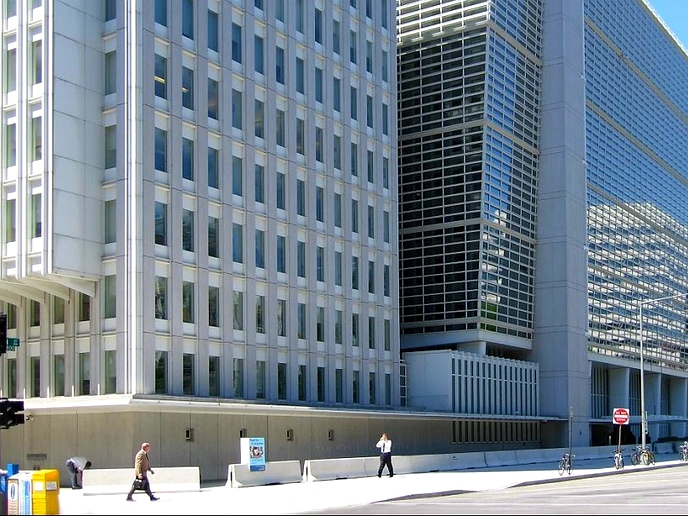The continent’s crypto market is still comparatively small, but the options for fraudsters and cyber criminals abound.
business
Aug. 17, 2021
RICHARD CHELIN
4 min read
New playground for crypto scams and money laundering

New playground for crypto scams and money laundering
Africa has the smallest crypto currency economy globally, but the market is growing steadily. The legitimate use of cryptos can boost commerce on the continent, particularly among individuals, small businesses and entrepreneurs. These were the users responsible for most of the recent increases in crypto transfers recorded in South Africa, Nigeria and Kenya.
But Africa must prepare for the threats that come with digital currencies - notably crypto scams, organised crime and financial crimes such as money laundering or crypto laundering.
The world’s biggest crypto scam in 2020 was perpetrated in South Africa by Mirror Trading International. Using a Ponzi scheme, hundreds of thousands of victims were swindled out of US$588 million in Bitcoin. In April 2021, South Africa was again in the news with an even bigger crypto hack – this time by a company called Africrypt, whose two founders stole US$3.6 billion from investors in a matter of hours.
Crypto currencies - made famous by Bitcoin, which was the first to be launched in 2009 - are virtual or digital money in the form of tokens or coins. They are used to purchase goods and services and have become popular investment vehicles.
Crypto crimes occur when criminals steal crypto or the funds invested in these currencies, using ransomware, scamming, hacking and theft. The latest Crypto Crime Report released by Chainalysis identified Russia, China, the United States, the United Kingdom, France, Ukraine, South Korea, Vietnam, Turkey and South Africa as receiving the highest volume of crypto currency from illicit addresses.
South Africa was the only African country mentioned in the Chainalysis report. So far, the two main types of crypto crime reported in Africa are ransomware attacks and crypto scams.
Crypto currencies are decentralised and unregulated. Unlike the dollar or rand, no central banking authority manages their value, which derives from what users are willing to pay per unit. Blockchain technology enables, records and stores all online transactions and is based on strong cryptography to secure each transaction. The number of crypto currencies on the global market has surged to around 4 921. Bitcoin currently has the highest value, trading at around US$60 000 apiece.
The global reach and speed of transacting make these currencies appealing to criminal syndicates. And in most cases, they can send and receive payments without revealing their identity. Bitcoin’s users can now be traced via email addresses used to establish the account, but many other crypto currencies have not addressed this gap, providing users with complete anonymity.
Crypto currencies are the preferred form of payment for various cyber attacks that target computer systems, such as ransomware attacks or buying illicit weapons or fake identity documents on the dark web. And their advent, as Interpol notes, has exacerbated financial crimes such as money laundering.
Enjoy our daily newsletter from today
Access exclusive newsletters, along with previews of new media releases.
Cyber criminals prefer using cryptos over flat currencies to launder their illegally obtained funds. Crypto laundering - basically money laundering in cyberspace - is much cheaper, costing about 15% of the proceeds compared to around 50% using traditional money laundering methods.
Money laundering involves the placement, layering and integration of the proceeds of crime. To enable the placement of ill-gotten gains, criminals purchase crypto using real currencies. This should be the riskiest step for them, but many crypto services fail to implement the necessary anti-money laundering measures. Websites on the dark net provide another layer of anonymity for criminals looking to place their proceeds.
In the layering phase of money laundering, crypto services are used to conduct multiple transactions. At times they even convert payments from one crypto currency to another. The aim is to disassociate the final proceeds from the original funds. Although Blockchain records every crypto transaction, criminals use crypto currency tumbler or mixer services to conceal the trail on the blockchain.
The final laundering phase is integration - when dirty money is returned to the criminal after the source of the original funds becomes untraceable. Criminals send their ‘clean’ digital currencies to crypto service providers that specialise in laundering or have weak compliance measures. The crypto funds are then converted into a regular currency.
Although Africa’s crypto economy is still relatively small, the threat of crypto laundering cannot be ignored. Crypto currency trading is on the rise across the continent, with US$8 billion worth of crypto currency received and US$8.1 billion sent between July 2019 and June 2020. Countries with the highest use of crypto currency in Africa are Kenya, South Africa, Nigeria, Ghana, Morocco and Egypt.
Currently, crypto currency transactions to and from Africa are mainly remittances and legitimate business dealings. The use of cryptos is rising due to the predisposition of local currencies to hyperinflation, the high penetration of internet usage, an increasing youth population and high use of mobile money markets. These are the same reasons that make cryptos attractive for organised crime syndicates to launder their illicit proceeds.
The first step for African governments is to ensure that crypto service providers assess and mitigate their money laundering risks and implement global and national anti-money laundering regulations. These include customer due diligence, suspicious transaction reporting and record-keeping, among others. Crypto businesses should work with law enforcement to flag suspicious activities for further investigation.
Training and capacity building for police in recording and investigating crypto crime is essential. Interpol could offer this with support from experienced blockchain forensic companies similar to Project Titanium in Europe.
The expansion of crypto currency markets in Africa, coupled with a growing digital skills pool and transnational organised criminal networks, present the perfect breeding ground for crypto laundering to flourish. The problem should be tackled now to prevent Africa from becoming the next playground for crypto criminals.
*Richard Chelin is Senior Researcher, ENACT, ISS Pretoria.
Tailored for you



